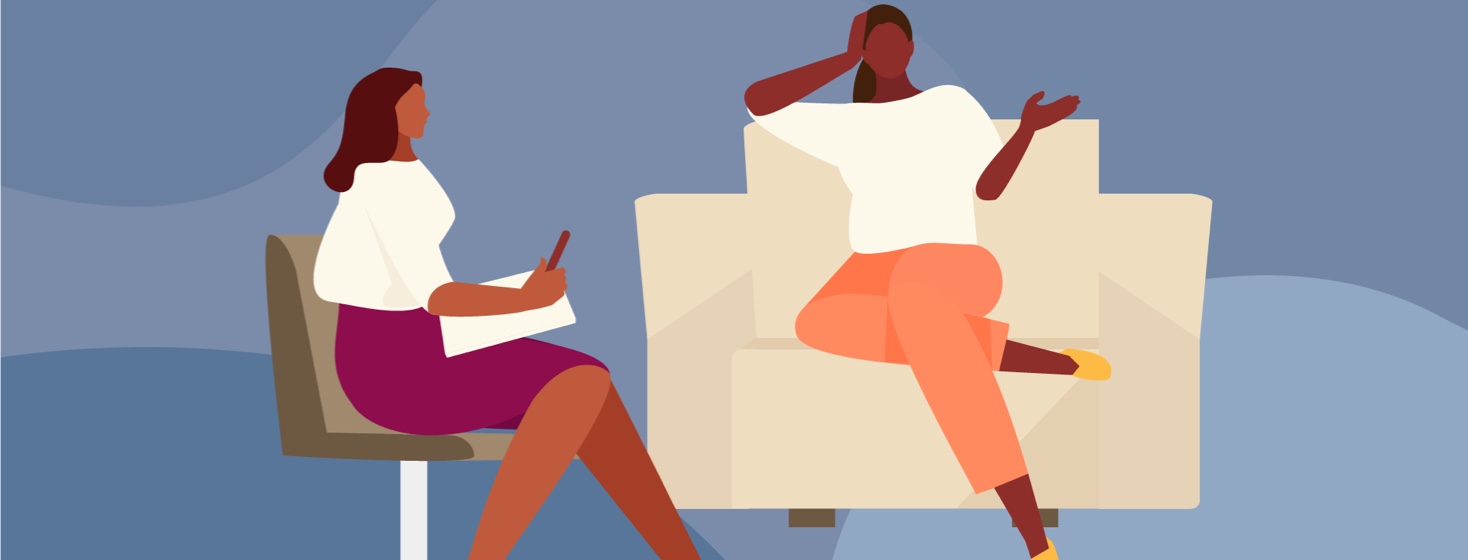Therapy for Postpartum Depression: Moms Share Their Stories
The transition to motherhood, while often portrayed as a time of unbridled joy, can be overshadowed for many by the debilitating effects of postpartum depression (PPD).
Fortunately, therapy, particularly cognitive-behavioral therapy (CBT) and interpersonal therapy (IPT), has been proven to be a highly effective treatment, offering new mothers a structured path to recovery by helping them reframe negative thoughts, develop coping mechanisms, and process their emotions.1
However, the decision to seek professional help is not without its complexities; potential concerns such as the financial cost, the challenge of finding a therapist who is a good fit, the time commitment involved, and the social stigma still associated with mental health can create significant barriers for those who need support the most.1,2
In this article, our Community Health Leaders share their trials, tribulations, and victories of seeking professional help through therapy.
Making the time to put yourself first
Oriana Cardin: Being a mom doesn't exactly allow you to put yourself first. At the time, I didn’t think it was important for me to go to therapy or seek additional help in coping mechanisms on how to survive — yes, survive — motherhood.
Natasha Lettner: My therapist is on speed dial because I don’t give myself the option of not having professional help if I need it. I have a strategy for self-care every day and scheduled time off to recharge. Having a little control makes me feel prepared.
Knowledge is power when it comes to PPD
Natasha Lettner: My therapy sessions transformed my understanding of mental health, which affected my entire family as well as myself. My therapy journey allowed me to study mental health and psychology, which made everything make sense.
Therapy enabled me to see the profound hold depression maintained over my biological family. My therapy sessions helped me understand how my family's untreated depression history relates to my postpartum depression struggles.
Gaining further insight to jumpstart healing
Oriana Cardin: With the help of therapy, I have been exploring the idea of reparenting my inner child. We all have an inner child who has experienced trauma in life, which can resurface when we become adults. Reparenting is not meant to replace your parents and how you were brought up, but rather, work with what you've got and start with healing from your past experiences and moving forward.
Amanda Osowski: In retrospect, I think my battle with postpartum depression would've been a lot harder and would've lingered for a lot longer had I not found a therapist not only specializing in it, but one that was such a good fit with what I needed in that season.
Coping with therapy barriers and stigma
Oriana Cardin: I did grief counseling in high school, but besides that, I didn’t have much experience. I was concerned about finances and starting therapy because I had heard it was all out of pocket. I found a great website called Grow Therapy where I was able to input my insurance information, read the available profiles of therapists, and choose one who had experience with postpartum.
Amanda Osowski: Even on medication and in therapy, my brain chemistry works differently than other people's...Ultimately, I knew I needed to talk to my therapist about how trying to conceive was affecting my mental health.
We talked about ways that I could protect myself, including increasing my medication and also by being honest with my spouse and my therapist about how each stage of the conception process was affecting me mentally. My depression was always going to be a part of my life, and ignoring it only made it worse.
How therapy can help you heal from PPD
Natasha Lettner: For me, therapy became a turning point. When I decided to get therapy, it wasn’t solely to treat my PPD. My goal was to interrupt the pattern.
Therapy has been a saving grace for me. I first started going during my first pregnancy and, through talking sessions, came to realize what was beneath my postpartum depression: my fear of repeating my mother's mistakes. I've already begun sessions for this pregnancy and will continue postpartum because it gives me a place to express my concerns and anxieties, making them easier to handle.
Amanda Osowski: Today, I'm incredibly grateful and lucky to say I found a provider that has changed my life. She helped me through my postpartum season, and then later she supported me in unpacking some things that were still affecting me, such as infertility and the impact on intimacy with my husband."
Oriana Cardin: After even the worst days, I try to come up with 3 things (sometimes I can only come up with 1) that went well. These things aren’t meant to erase the bad or create a false sense of positivity. They are meant to remind us that there are still good things in our lives to help us get to the next day.
PPD can persist and worsen without intervention. Professional treatment, including therapy and medication, support groups, and incorporating healthy habits can significantly improve outcomes.
